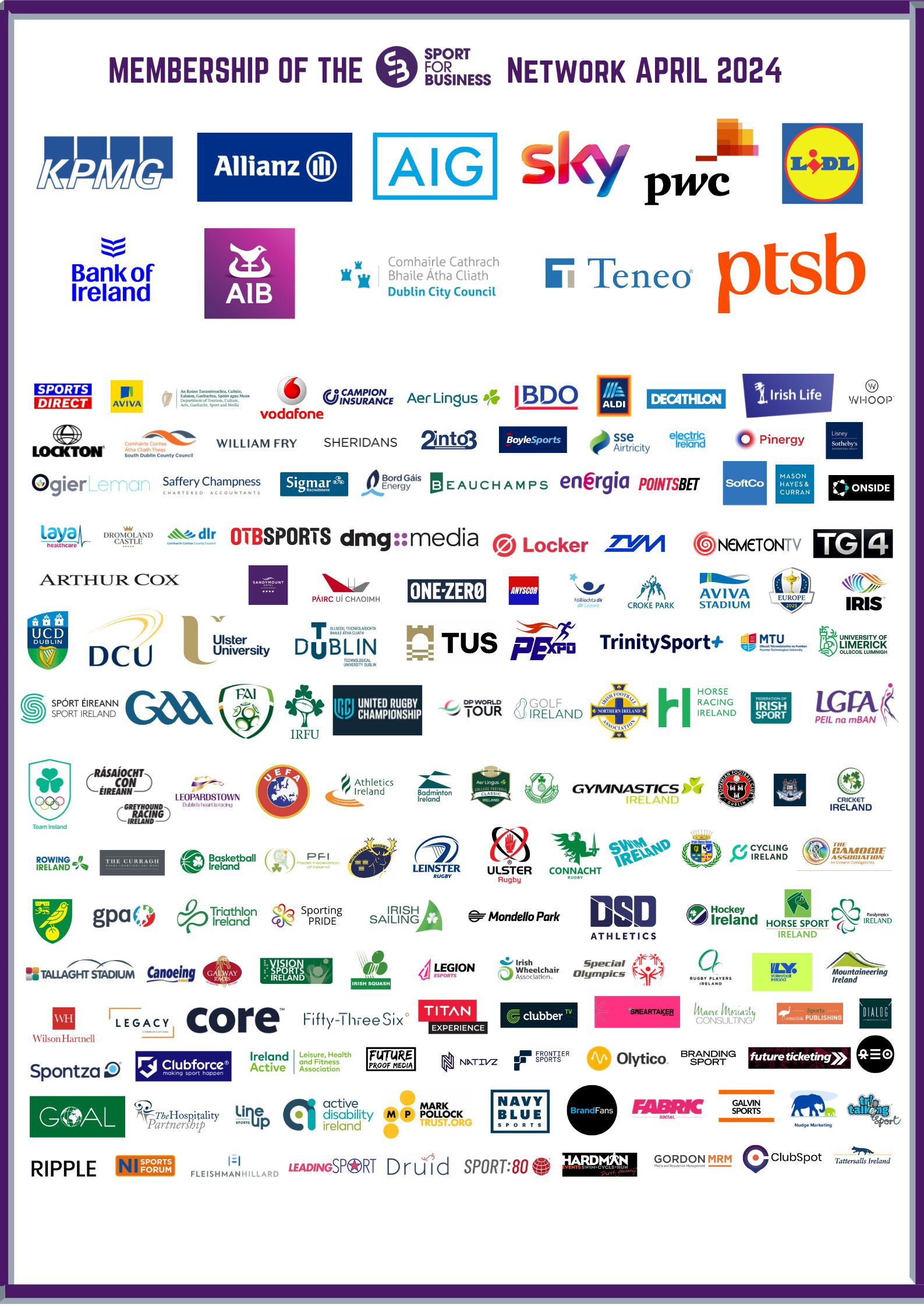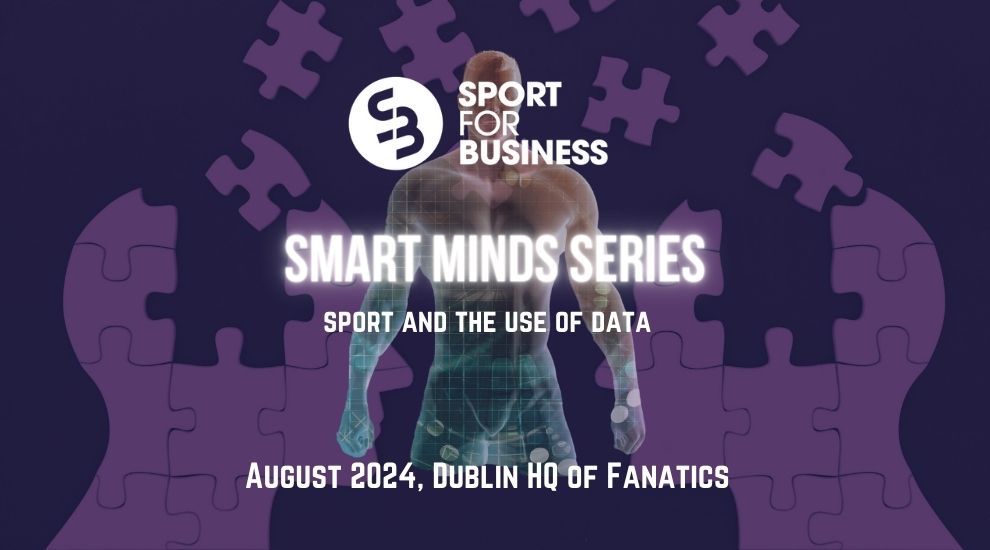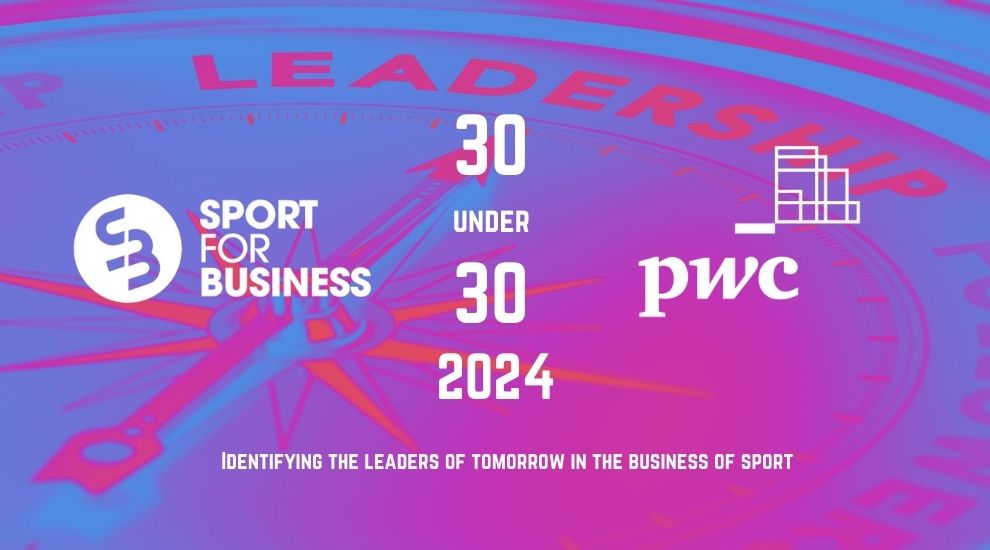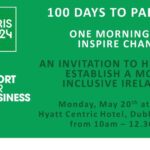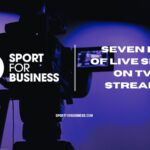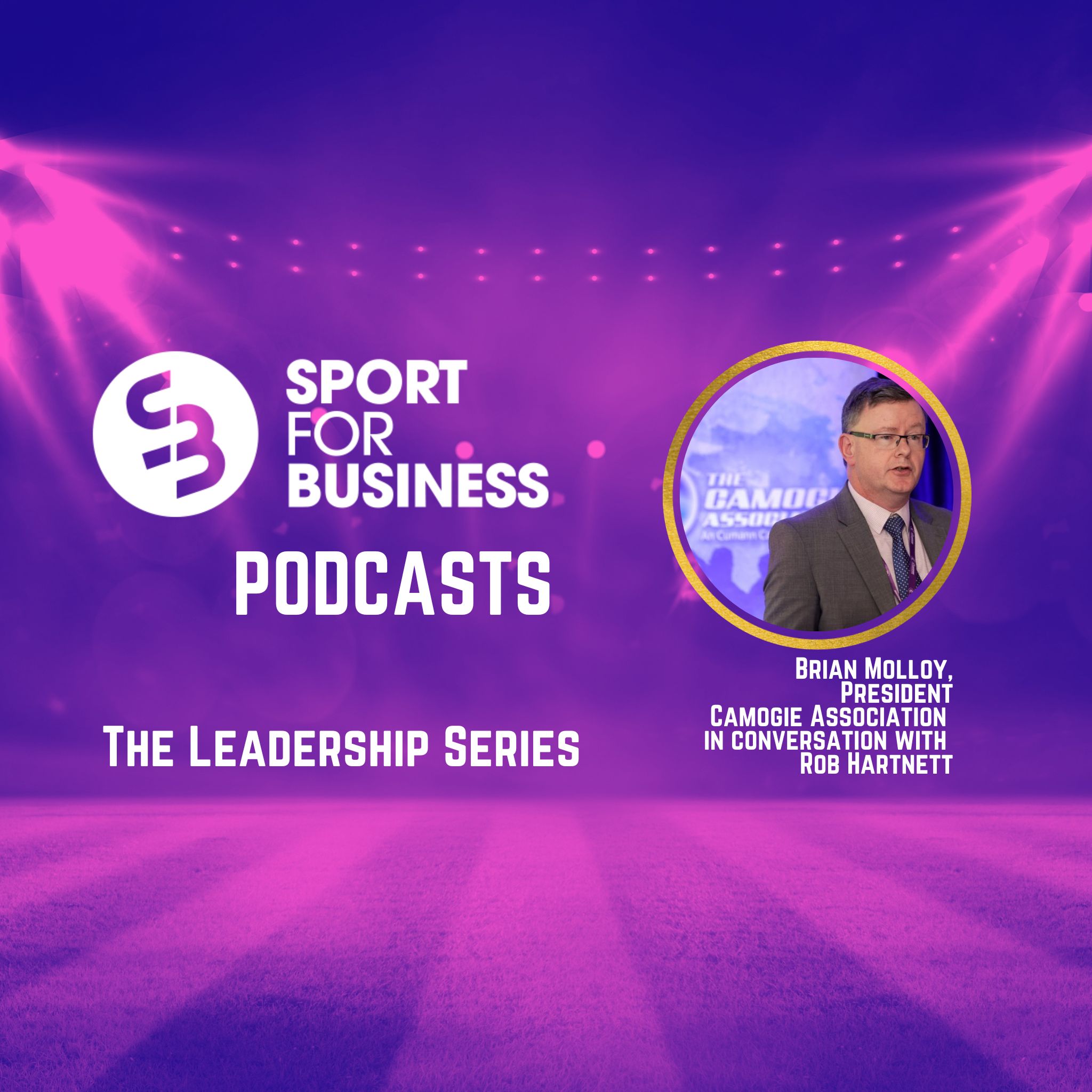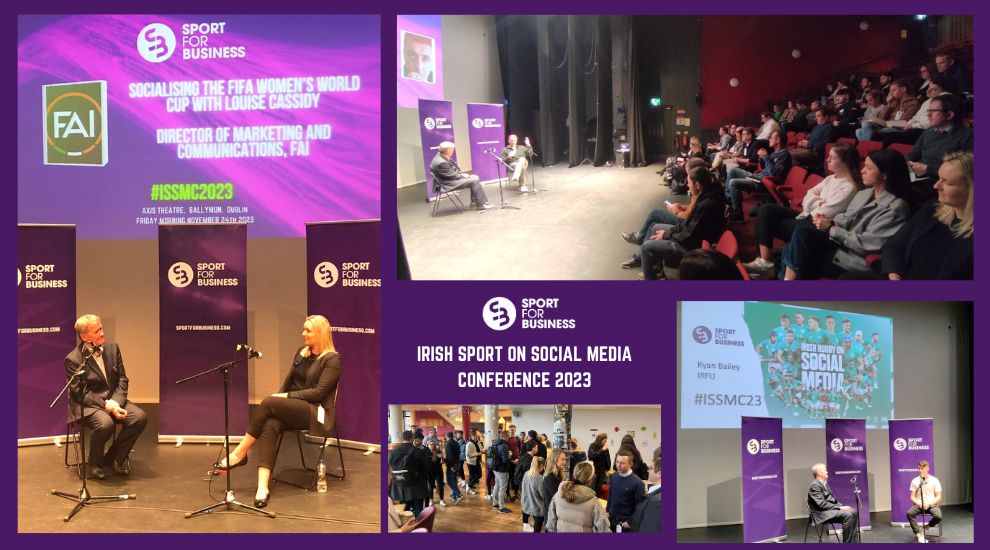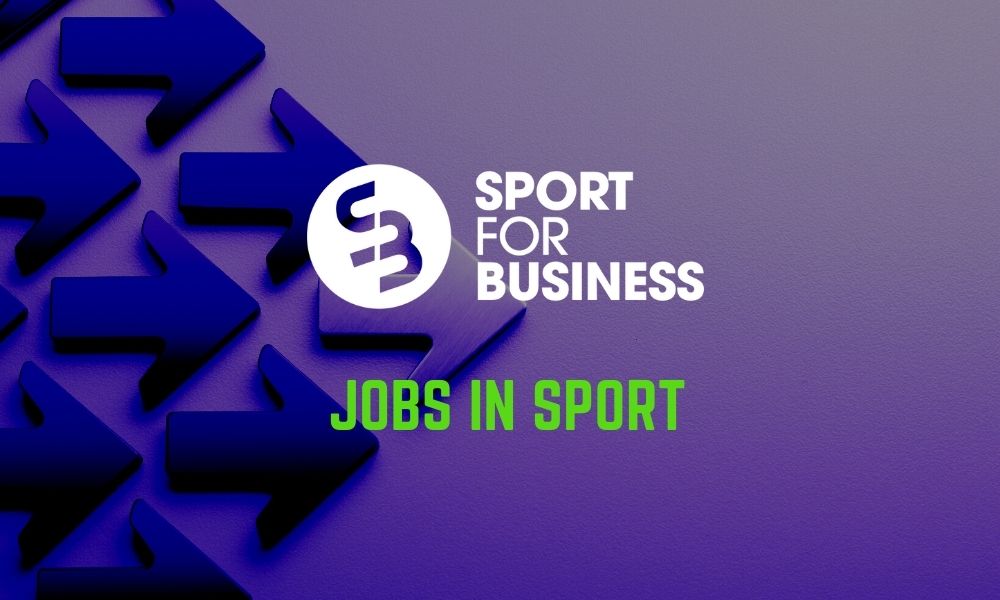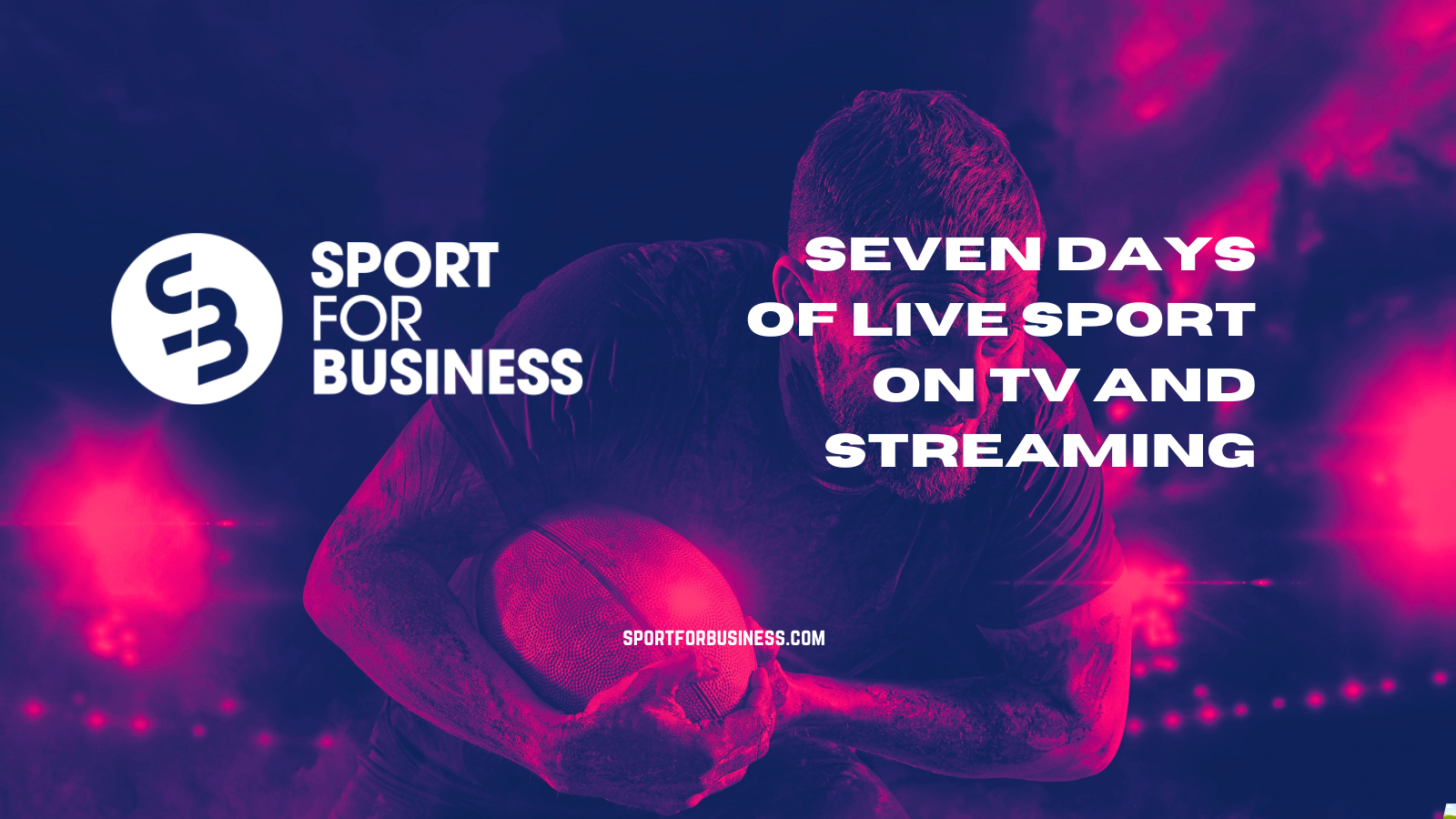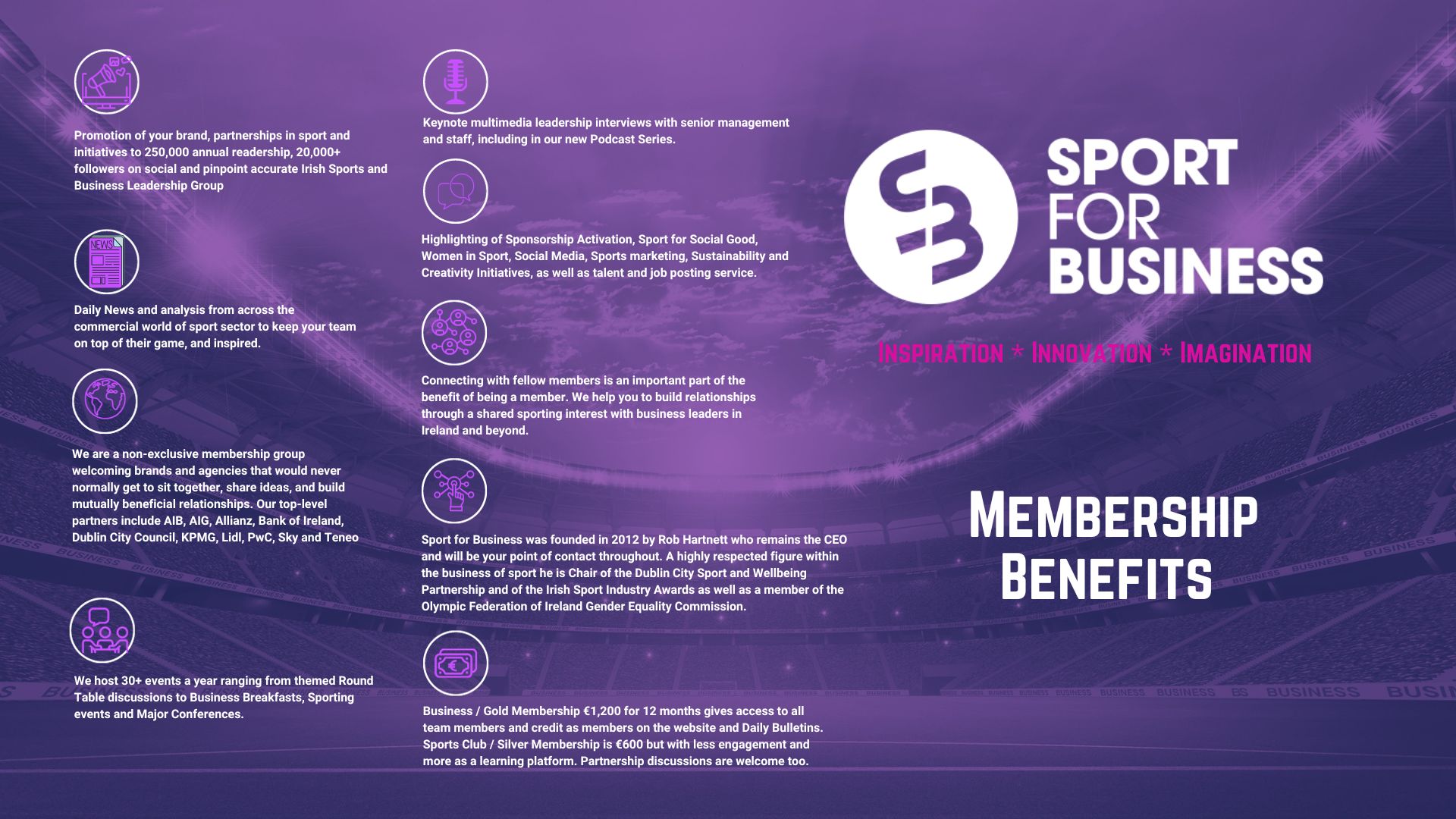Bank of Ireland recently aligned their support for all levels of the sport of rugby and committed to them for another five years.
It is an enduring relationship that works from the grassroots to the green shirt of Ireland.
For this week’s Thursday interview, we sat down with Bank of Ireland Group Chief Marketing Officer Laura Lynch to talk about the deal, what it means and why now was the right time to bring everything together.
You imagine when you’re at a point of today, where you’re able to announce five years, and a long-term deal, you know, pretty much what you’re going to be doing in each of those five years and you’ve got a fairly detailed plan but that doesn’t happen overnight, it doesn’t happen by accident. It happens through learning as you go along. What have been some of the points that you have learned along the way?
It does take in a huge spectrum. And the learnings are a key thing because over the years, we would have had different agreements with different provinces, you know, different things working at different levels and you learn from all of that.
And then when we looked at what was the opportunity at a broader level? That’s when we started to look at a potential relationship with the IRFU. To build that because we’re already involved with schools with clubs and the provinces and then how do we build the whole narrative to have that?
Our whole brand ambition is around enabling customers, colleagues stakeholders and society to thrive. So what does that mean then? And how does that translate in terms of community investment and our sponsorship portfolio?
So we felt bringing in the IRFU relationship and becoming an official finance partner to them, in the male and the female male and female was going to add to our ability to tell a story and build a narrative around grassroots support.
There’s been huge learnings over the years. What works in schools, what works in terms of enabling the clubs and working with them. What we’ve tried to do is to take a step back, and look at it holistically from our own brand perspective to say, what works really well for us, what works really well for them, and then what will work collectively.
What does that mean in terms of how this latest announcement aligns?
So, one of the things at a very basic level was aligning all the contracts. It sounds like a simple thing, but it’s not. So we had lots of different rollovers and contracts and extensions happening. It just seemed to be happening constantly. So actually aligning them all to happen at the one time and the same time was a huge piece of work.
Secondly, the commitment for five years. That’s really important. It is a statement commitment that gives huge stability and confidence to the provinces.
We were conscious and aware that when we announced our commitment to the national teams, there was a little bit of fear and nervousness. So I hope this allays that fear completely because not only have we re-signed with all four but we’ve re-signed with all four for five years which to me was really important.
It’s signalling our commitment to Irish sport because this is a big investment on behalf of the Bank at a National, Provincial, Schools, Clubs, Women’s Men’s the whole game.
Does Rugby especially fit with the Bank of Ireland sense of itself?
The fit for us, from a brand perspective, is really, really good. It works brilliantly and we have to make sure that remains the case for the next five years.
You mentioned customers, colleagues, stakeholders and society. Should we read anything into the order of that? Is that the order of priority when you boot up your computer in the morning? What is the first thing that you’re thinking about?
It’s not that one is necessarily more important than the other, but we’re all there to serve our customers, no matter what role you’re in in the bank.
The culture we’re trying to build is that no matter what role you’re working in at Bank of Ireland, you’re there to serve a customer.
So, it’s not me that goes down to Navan on a Saturday. It’s local branch managers that get involved at the local levels and get involved. It helps them build relationships locally.
So when you’re investing in the local clubs like that, do your staff self-select at a local level who gets involved? It always strikes me if you’re watching it on the television as opposed to being there live and you see the handing over of the player of the match and it’s a split second that you see the local representative in there but you just get a sense that it’s huge for them.
Yes. If you are working in Bank of Ireland and you’re working in a local community and then you can link into something that we’ve committed to, invested in, you can see that investment in your local area.
You can feel it for your neighbours, for your kids, for your cousin who’s the groundskeeper. It’s a special feeling for our staff and an important part of what makes it a great partnership with rugby.
Is there a part of the budget that goes towards that as well? So you’ve got one nation four provinces and then you’ve got hundreds of rugby clubs around the country. There is a natural sense that, well, if the local bank manager is coming along, I’ll have a quick word with him and maybe he could get us a set of jerseys here or maybe he could pay for such and such a dinner there.
So we work with the provinces and we agree our commitment to them and it’s up to them.
We are fully confident that they do that in a very equitable and fair way as well, but we don’t get involved in that, and specifically so, and I think that’s the right thing.
Sport is a competitive beast. You’re one of the threads that binds the four provinces together. Is that something that you take on board and have as a responsibility as a sponsor?
Very much so, yes. So you’re helping all of them to be better by helping them to recognize how each of them is different.
It’s unusual having the four of them here at this launch. Every other launch has been by province, with each deal negotiated separately.
We don’t ever get involved in telling the provinces how to do their jobs, but we work really closely with them on how we activate, and we share what works well.
One thing that might have worked really well in Ulster, so maybe we could do it in Connaught as well. And they’re very open to that.
They all are hugely committed to Irish rugby, to succeeding and to winning.
Now that can mean they’re competing with each other, but then the next day or the next week, the players are playing together. They’re fiercely competitive, but they’re also comrades.
So they’re very, it is unusual, right, because you don’t have that in a lot of sports. Yeah. And so I think for us that’s been a real golden thread of bringing that all together. It’s taken, it’s taken long hard yards to get what I was saying to you, all lined up, that the contracts were aligned. Yeah.
Getting all the, you know, the contracts agreed and signed and the commitment for the five years. Organizing a day like today to get everyone together. Imagine trying to align the diaries and then getting them all into one room and everything. To me that’s huge progress. And the relationship is very much with each of the individual properties.
So we know the nuances of each of them. And we know their own strategies, and their ambitions, and their different plans, and they share that very openly with us as their partner. We don’t share that collectively though, but we can help each of them in different ways.
So the first ad to appear after you came on board with the national team was very much focused on the grassroots, on the young girl and the dad who was now exiting the fourth s and then being brought back. A bit of humour and recognisable for a lot of parents.
And a real story. No actors involved in the making of it? It all happened the way it happened. And it’s very purposefully picked for that reason. She does play rugby.
That whole story arc was important. There are issues with females dropping out of sport.
So, how do we add to that and support that? And that was very much the thinking behind that ad. We picked the story arc very specifically, so it talked to, yeah, a lot of people. It talks provincial, it talks national commitment. But it very much goes to regular family commitments as well.
How far in advance do you need to sit down and work on activation plans over the length of this deal? Is there a degree to which you can be flexible and grab the moment? So, Leinster, for example, at the moment, they’re about to play in Croke Park. Can you be nimble enough to tap into that?
We’re starting our planning in August and September for next year. And we’ll have our plans laid down, agreed, and we’ll book our media nice and early and all of those nice things that everybody plans to, and it’s the right way to work.
However, we’re also very aware that we have to be uber-responsive.
So, when you think about it, Munster ending up going over to South Africa. We did a huge activation around that, we sent our own social media manager over. Because that was a moment. You plan in detail but you also have to be able to flex.
Our own team have an eye for detail. They know they’re looking around corners all the time for the brand and for the team.
There’s a huge passion for sport in Ireland. Irish people love sport. And the lovely thing is, about rugby, you can adore your club, but not really follow your province. You can hugely follow a province, but not be linked to your local club.
You might not follow either, but support the Irish team. And there are people who fit in all of those categories
One of the things about rugby at the moment is that by being such a popular sport and by being the kind of the number one business sport, if I phrase it like that, it’s a busy marketplace.
So you’ve made a very significant investment in the sport. But so too have Vodafone, so too have others at various different levels around the place.
We’ve spoken about collaboration and the golden thread that binds people together. Do you find that you’re in a position now to work closely with other brands that are working around rugby?
I mean, we don’t have a secret cabal that meets, right, so I know the guys and I meet them at matches.
It’s all very positive. Vodafone do superb activation, they do it beautifully. But the reason we’re doing it in our activation is very different. So that we’re not competing.
We’re not competitors anyway, but we’re also not competing in terms of the messaging we’re trying to land and how we support and why we support is quite different. Actually, I think a lot of the work they do complements what we do. We are committed to Rugby and bringing the game forward in Ireland as two really good brands.
What I have seen over the years is that sport has gotten far better at looking at the alignment of partners, not just with themselves, but with each other.
There’s a real commercial sponsorship focus and a focus on the partners and the brands.
We don’t have to have a row and take out the contract to resolve something. We work hard to manage the relationships, to keep those relationships up, to make sure we’re very clear in terms of our ambitions and our objectives, what we’d like to do, how we’d like to work.
I think once you’re both very clear, and there’s a value exchange on both sides, which there is, then that’s a good thing.
So you haven’t gone in dreamy-eyed and soft focus, and sort of wanting to do it for the good of the game. You’ve gone in with a commercial edge.
We don’t do commercial sponsorships because it’s a nice thing to do. We do them because it’s the right thing to do for the brand and to be able to activate at a community level on a national level. It’s really important for us.
There are commercial outcomes of that and that’s important too. And you balance the two all the time.
Ten years ago, the idea of a sporting sponsorship being central to a TV campaign, and above-the-line advertising, was hard to imagine but now it’s central to the whole marketing campaign.
Was there a moment where you kind of thought, Oh we can use this asset to speak to people in a way that, you know, other ads might not?
So years ago, you would have seen quite a significant amount of product-led advertising. So, we talked about lending, we talked about cars, we talked about mortgages. We’ve moved away from that very specifically because people want to buy off a brand they believe has some sort of purpose, some sort of positive impact on their lives.
Younger people are much more purpose-driven. They want to know ‘What do you stand for?
Everyone knows we’re a bank. Everyone knows that we sell loans and mortgages. The clue is in the name. But actually, we’ve evolved that quite significantly even in the last three years. Okay.
So we use data and analytics and targeting of channels to target customers where we feel it’s relevant for them with the right product at the right time. That’s the future of marketing,
So we talk about beginning together, our community funding. We talk about rugby and our commitment to rugby at a broad level and we talk about financial well-being, financial literacy and the f-word because we want people to talk more about money and finances.
We want them to get on top of it. We have a role to play in that but it’s different for everyone. So the role we play for you is different to the role we play for your brother or friend.
We want people to know we’re here, this is what we stand for.
Bank of Ireland and the Four Provinces are all full members of the Sport for Business community.
The Sport for Business Membership comprises nearly 300 organisations including all the leading sports and sponsors, commercial and state agencies.
Find out more about joining us today.
Be part of the biggest community of sporting and business organisations in Ireland by becoming a member of Sport for Business and enjoying a host of benefits.
Get ready to join us for some of these forthcoming events…





